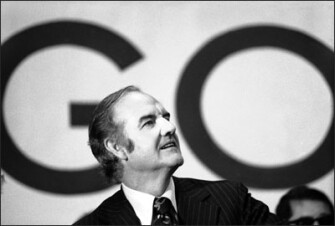When the Democratic party unveiled its platform at its national convention last week, the word “voucher” was, not suprisingly, nowhere to be found. The Obama administration, after all, opposes allowing taxpayer funds to cover the costs of private school tuition, as do many, though certainly not all, Democrats. And so the party’s version of school choice is distinctly of the public school variety: It calls for expanding “public school options for low-income youth, including magnet schools, charter schools, teacher-led schools, and career academies.”
The administration’s stance on vouchers offers one of the presidential campaign’s sharpest contrasts on education policy between the president and his Republican challenger, Mitt Romney. The former Massachusetts governor has proposed the creation of an ambitious voucher model, which would allow families to use federal Title I dollars (which go to needy students) and special education funding to use to cover private school costs.
But the Democratic party’s official stance wasn’t always so staunchly anti-voucher.
In 1972, when George McGovern was the Democrats’ nominee for the White House, the party platform called for the next White house administration to “channel financial aid by a constitutional formula to children in nonpublic schools,” notes Adam Emerson of the Thomas B. Fordham Institute, who in a recent post traces the party’s evolution on private school choice.

The 1976 party platform takes a different slant. “The party reaffirms its support of public school education,” it states. “The party also renews its commitment to the support of a constitutionally acceptable method of providing tax aid for the education of all pupils in nonsegregated schools in order to insure parental freedom in choosing the best education for their children. Specifically, the party will continue to advocate constitutionally permissible federal education legislation which provides for the equitable participation in federal programs of all low- and moderate-income pupils attending all the nation’s schools.” (I’m not sure here if “parental freedom” to choose schools includes private schools.)
Emerson attributes much of the party’s thinking during this period to the influence of the late Sen. Daniel Patrick Moynihan, a New York Democrat and an adviser to both Democratic and Republican presidential administrations.
Moynihan and others in the party were interested in helping Catholic schools and the families who attended them. But as teachers’ unions gained clout within the party, opposition to vouchers gradually solidified, argues Emerson, who backs the private school choice option. Today, the majority of the support for vouchers comes from the Republican side, though private school choice advocates have a presence in the Democratic party, particularly at the state level.
Photo: George McGovern addresses a crowd in New York in October, 1972. Bob Daugherty/AP-File.
